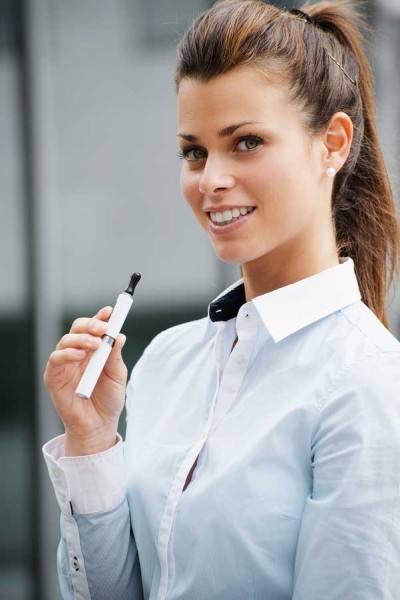In this day and age, you can now add cigarettes to that list of digital items. Electronic cigarettes, or e-cigs, have been around for a while, but have really undergone a boom within the last five years. Many are turning to e-cigarettes in an effort to stop smoking the real thing.
Yvette Delgado is an imaging specialist at UTEP and has been smoking cigarettes for 15 years. She has tried electronic cigarettes for a couple of months now. Her reason for switching to them is due to the smoking ban on the UTEP campus.
Since trying them, Delgado said she has found several advantages to using e-cigs instead of smoking real cigarettes.
“I can smoke it in my house and not stink. Sometimes I just want a couple of drags not a whole cigarette,”
Delgado said.
Aaron Dashnaw, freshman pre-engineering major, has been smoking since he was 15 and he is now 19.
“I don’t like e-cigs, I will just puff all day on it and then just want a cigarette,” he said.
Dashnaw said he just wanted to try an e-cig to see what they are like, but he doesn’t think they do anything.
Jon Law works for the Paso del Norte Health Foundation and is the CFO and previous program officer for the Smoke-Free Initiative, an effort to create awareness of health risks in cigarettes and cessation resources for El Paso, Southern New Mexico and Cuidad Juárez, Chihuahua.
“You’re seeing a lot more vapeing (stores that sell E-cigarettes and paraphernalia) stores in El Paso,” Law said. “They are fairly common in the market place.”
Law said the question is when and whether the Food and Drug Administration will eventually begin regulating electronic cigarettes.
“What they have found is that the FDA has looked at the contents of e-cigarettes…there are different levels of nicotine within the same brand,” Law said.
Law also said one concern is the history of tobacco companies trying to market to a younger generation. Because the cartridges come in candy flavors, it is suspected that this is one of those tactics.
“What we know now, nationwide, about 10 percent of high school students have tried e-cigarettes,” Law said.
He believes there is not enough information yet to say what the effects of electronic cigarettes will be.
The American Council on Science and Health has published several articles fighting against the backlash electronic cigarettes have had in the media. The ACSH was founded in 1978 and is made up of scientists whose concern is that certain public policies related to health and the environment do not have a sound scientific basis.
According to the ACSH, the headlines found in the media regarding e-cigarettes have not been based on substantial enough evidence to be quoted as fact.
Rebecca Leech owns a vape shop on Mesa called Crush, which opened July 2013. Leech specializes in making her own nicotine vapor solutions.
“They are made with pharmacy-approved propylene glycol, vegetable glycerin and candy flavorings,” Leech said.
Leech believes vape shops have only reached their peek, at least in her shop, within the last year.
“Anything you use in excess becomes an addiction, nicotine only got a bad rap, yet they failed to mention the other 4,000 chemicals found in a cigarette,” Leech said.
Her vapor does contain nicotine, but Leech said that is far less harmful than smoking a cigarette. Leech believes vapeing is a far better alternative to smoking cigarettes.
“You have choices, a healthier option where you can be vapeing and you don’t have to worry about lung disease, emphysema, heart disease,” she said.
Adriana Martinez, junior English and American Literature major, prefers to smoke cigarettes, but she has had to cut back by using e-cigs to be able to work out.
“It’s not an overwhelming feeling like a cigarette…I don’t cough as much now and I can work out,” Martinez said.
She said she enjoys electronic cigarettes for the health benefits she has noticed in her own life.
Helen Yip may be reached at [email protected].





